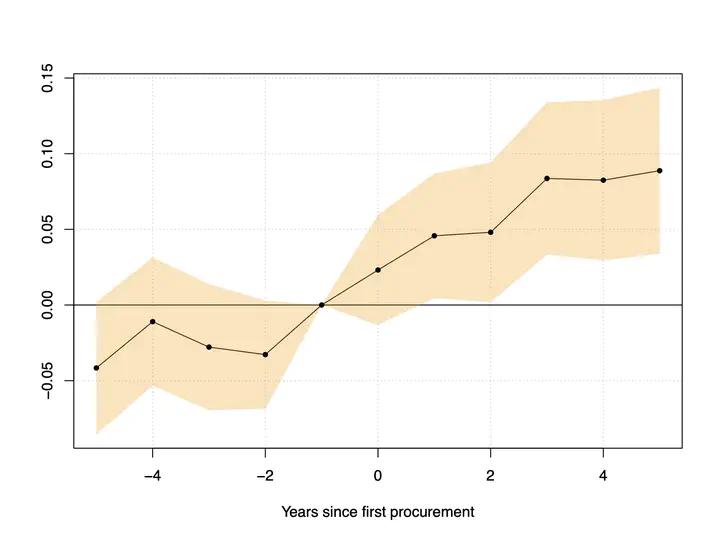 Procurement winners secure further contracts in the future
Procurement winners secure further contracts in the futureAbstract
Economists have been long debating about the effectiveness of policies aimed at inducing directed technical change. Policymakers can use several tools, such as military-driven public investment, research grants, or public procurement. I examine a unique amalgamation of such tools in a US context, where small businesses winning federal research grants (SBIR) can also secure procurement contracts from the Department of Defense. Employing a Difference-in-Differences framework and three comprehensive datasets - SBIR grants, DoD procurement contracts (USAspending.gov), and Patstat - I find that while procurement contract winners do not patent more than other SBIR participants, they get 1 million dollars more in government contracts every year.
Type